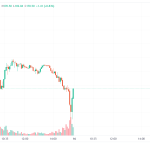Many financial disasters stem from failures in this balance, emphasizing the importance of a nuanced and adaptable approach to trading.
Trading Expert-Balancing Fear and Overconfidence for Success
1. The Balance of Fear and Overconfidence
- Overconfidence Without Fear:
Arrogance in trading involves a high level of self-confidence and a belief in one's ability to make correct decisions. This trait can drive bold, assertive actions in the market.
Without fear, this confidence can turn into recklessness. Traders might take on excessive risk, ignore potential downsides, or overlook critical information. Over time, this approach can lead to Heartbreaking losses, as markets are inherently unpredictable and unforgiving.
- Fear Without Self importance:
Fear in trading involves a heightened awareness of risk and potential negative outcomes. It can lead to a cautious and risk-averse approach.
Excessive fear can result in paralysis, where traders are unable to act decisively. This can lead to missed opportunities or the inability to capitalize on favorable market conditions. In fast-moving or volatile markets, this paralysis can be particularly detrimental.
- The Balance:
Just as a seasoned sailor uses both confidence and respect for the sea to navigate safely, a successful trader needs a balance of fear and arrogance. This balance allows for decisive action while maintaining a prudent awareness of risk.
2. Understanding the Nature of Trading
- Being Right vs. Navigating Being Wrong:
- Common Misconception: Many investors believe that trading success hinges primarily on being correct in their predictions. While being right can be a factor, it is not the sole determinant of success.
- Reality of Trading: The essence of trading lies in how well one handles mistakes and adverse outcomes. Markets are inherently unpredictable, and errors are inevitable. The key to long-term success is not in avoiding mistakes but in managing and recovering from them effectively.
3. Learning from Historical Disasters
- Historical Evidence:
- Financial Disasters: Many financial disasters throughout history can be traced back to failures in risk management and an inability to adapt to changing conditions.
- Failure to Adapt: These disasters often started with overconfidence or insufficient caution in the face of emerging risks. The inability to adapt to errors or changing market conditions contributed significantly to their severity.
4. Assurance vs. Self-will
- Assurance
Conviction refers to a strong belief in a particular trading strategy or position, based on thorough analysis and understanding. It involves having the confidence to stick with a strategy even when facing short-term volatility.
Traders with assurance are informed and rational, maintaining their positions because they believe in the long-term validity of their strategy.
- Self-will:
Self will is a refusal to change one’s position or strategy despite evidence suggesting a need for adjustment. It involves rigidity and an unwillingness to adapt to new information or market conditions.
Self will traders may end up holding onto losing positions, driven by an unwillingness to acknowledge that their strategy or analysis might be flawed. This can result in mounting losses and potential financial ruin.
- Differentiating Between the Two:
The difference between assurance and self will is often clear only in hindsight. A position that proves correct in the long run reflects conviction, while one that leads to losses reflects stubbornness.
5. The Road to Riches
- Journey to Success:
- Reality Check: The journey to financial success in trading is fraught with challenges. The belief that success comes solely from being right is a misconception. Instead, managing risks, learning from mistakes, and adapting strategies are crucial.
- Confidence vs. Stamina: While assurance can drive success, it must be balanced with the flexibility to adapt. Those who persist without adjusting to new information or changing market conditions often find themselves on the losing end.
Conclusion
In trading, the interplay between fear and over confidence is crucial. Arrogance drives confidence and action, but without fear, it can lead to reckless behavior. Fear ensures that traders remain cautious and aware of risks, but too much fear can result in missed opportunities. Successful trading involves managing both traits effectively, understanding that success lies not just in being right but in handling mistakes and adapting strategies. History teaches that many financial disasters stem from failures in this balance, emphasizing the importance of a nuanced and adaptable approach to trading.
Leave a comment
Your email address will not be published. Required fields are marked *



